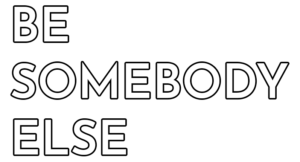by Tom Tomaszewski | Mar 6, 2024 | ALIENATION, DESOLATION, FRUSTRATION, HELPLESSNESS, HESITATION, INEXPERIENCE, MONOTONY
Insight and information can help you avoid repeating past ways of feeling, thinking and acting. You need to protect your capacity to think with that information, rather than to remember it. Your capacity to think freely is what will keep you safe and doing life the way you want.
Here are three things that you can do three times each day which will help prevent your body from becoming overloaded by negative intensity… worries, resentments and so on … the kinds of thing that will leave you stuck. causes a loss, sometimes a radical loss, of momentum. These three things promote positive intensity: the joy of being able to feel relaxed and thoughtful, the pleasure of being in harmony with your life, and the ability to start and stop things when you need to.
Box Breathing
Experiment with different amounts of time for the in-breath, pause and out-breath to see what suits you most for a situation. Box breathing is something you can always turn to discreetly
Don’t get taken for a ride
Stop being taken for a ride. Go and see films specifically to explore whether staying watching them or leaving is the best option. After you leave you need to be able to tell someone why you left. How long can you stay before you’re confident the film is not going to deliver what you need? You can experiment like this with any kind of experience, really. Always hold a place for your right to leave, work out how to do this in ways that feel right for you and others (ie storming out might not be the best option – quietly departing might be instead. Do you really want to make a point? What will the effect of that be on?
Instant sound bath
Buy a tuning fork or two and sound these close to your ear for an instant experience of being present in the world, connected to something outside of you that leaves you feel grounded in yourself.
by Tom Tomaszewski | Mar 3, 2024 | HESITATION

HESITATION / PANIC
People who have been traumatised might tolerate things well. Their instinct for how long to stick with a difficulty or how much to absorb its effects (often complication, anxiety and irritation) may be just about right. On the other hand they are likely to have tolerance problems. They’ll panic and have faith, hope and trust in nobody and nothing, or in anyone and everything.
Faith, hope and trust
Someone once wrote to me: ‘faith, hope, trust’. They weren’t writing about anything in particular, just offering me three words. These are three words that traumatised people might long to invest thought and feeling in. To have faith, to hope and to have trust. Whatever’s happened to you I imagine it’s messed with your sense of these qualities, ones that are fundamental to relationships. Without faith, hope and trust, what’s a relationship?
Try having no faith, hope or trust
Yes, try it. It’s almost impossible, but what emerges is still worth embracing because of what might emerge from that faulty, incomplete but nonetheless un-clinging place. To have faith, hope and trust is to cling on. Imre Hermann writes about a ‘clinging’ instinct that involves the kind of PANIC that Panksepp writes about and his version of attachment theory gives us clues about how to find faith, hope and trust.
You need to find faith, hope and trust
Faith, hope and trust need to develop out of a sense of need, not to be served up on a plate. Faith, hope and trust served up on a plate usually ends up tasting awful. So after you try to have no faith, hope and trust see what cooks up. You are far less likely to be disappointed and PANIC.
Disappointment and tolerance
Trusting a sense of faith in someone or something can lead to the end of hope, not the beginning. Hopelessness usually arises out of idealisation and over-valuation (or other ways of valuing, not least undervaluing, which is different from not valuing.
Refuse faith, hope and trust
Maybe the best you can do is to refuse faith, hope and trust until you find that refusal leads to you being offered something else. The pain that comes from losing these qualities, from feeling abandoned or let down is something a traumatised person has already experienced – radically. You don’t want it to happen again.
What else?
You don’t know until it is there. But you will know that whatever arrives, maybe the possibility of a relationship or some other form of security feels real. Refusing faith, hope and trust will make reality dawn on you. At some point you step into something like daylight. This is real. Whatever’s real you can do something with – anything unreal will amount to nothing. Remember, feelings are real. Words do things, as AJ Austin wrote. Faith, hope and trust are keys to living well.
by Tom Tomaszewski | Feb 29, 2024 | Be Somebody Else, MONOTONY

MONOTONY / SEEKING
Every event in your life, that is every moment of your life, will feel significant or insignificant. The ones that feel insignificant are the ones you are unlikely to notice, and vice versa. You have very little control over which events you regard as significant or insignificant: it’s an instinctual thing. Notice that we are thinking about feeling here, not knowing.
If you think about your life in terms of momentum you can change this relationship. New things can become significant. Events will seem more or less important than they used to. Life will take on different proportions*.
When you emerge from an event let it play out like a film for you, let it really move you like a film does, and see whether that event takes you to other ones in your past. don’t think about it, just get into it like you would a really emotional film.
This happened to me recently when I watched a film called All of Us Strangers. It took me to scenes from my childhood. I didn’t take myself to them, I just found myself there, in memories. In my memories I saw myself doing things in ways that I have often done throughout my life. Most of these I was aware of, but watching that film at that time allowed me to notice something new. Freud writes about this effect all of the time.
I noticed a way in which I tolerate things and could see how that way of doing life had been necessary, and often will be in the future (a lot of the time it’s a great asset), but that now I need to do some things differently. My life now demands it.
That felt super-intense. My momentum changed. Going with this my life may have a different trajectory, hopefully one best for me and those close to me.
Try it. Find a good film and let it move you. Don’t ask what the film means. That’s like saying you want it to explain itself … and its a film. Just let it do its thing and affect you. Go with the effect. Go with the affect. If you want to know why then that will most likely occur to you later
by Tom Tomaszewski | Feb 21, 2024 | Be Somebody Else, FRUSTRATION

FRUSTRATION / CARE
Life becomes a process of gathering momentum out of difficult events (broadly speaking, and unscientifically, entropic ones), the ones that elicit disagreement, distraction, aggravation, loss, unhappiness and disorder as much as those things that seem to maintain the status quo (loosely, homeostatic ones). The more momentum you gather the less likely you are to become stuck.
by Tom Tomaszewski | Feb 20, 2024 | MONOTONY

MONOTONY / SEEKING
I sometimes get a very strange feeling that makes me feel unmistakably alive. It’s un-monotony … a kind of super-enthusiasm where everything seems precious and vital. It has more feeling about it than seems real, actually. There are three films I can think of which make me feel like this, but only really the scenes filmed in parks. Cleo de 5 à 7 by Agnes Varda, What Time is it There?by Tsai Ming-liang, and Blow Up by Michelangelo Antonioni. It’s something to do with the odd sense of urbanity when you get inside a city park. Animals live there. People don’t (apart from the people looking after the park). You play there or do nothing productive you could stick a value on. Anywhere else in a city you’ll find people somehow working but every park is an oasis.
This makes me think of Daniel Stern’s work on vitality..




